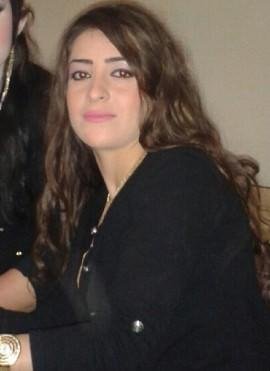 ”I used to have a nice life until Daash attacked us in Shingal,” explains 20-year-old Adib Khudeda Qasem. The Islamic State (also referred to as IS, ISIS, ISID, ISIL) is called “Daash” in Iraq.
”I used to have a nice life until Daash attacked us in Shingal,” explains 20-year-old Adib Khudeda Qasem. The Islamic State (also referred to as IS, ISIS, ISID, ISIL) is called “Daash” in Iraq.
“Now our life is finished,” adds her younger brother.
Adib is now living with 32 of her relatives in the Ezidi refugee commune in Sirnak, Turkey, with 1400 other Ezidis. Twenty-eight of her female relatives have been kidnapped by the Islamic State.
When I first met Adib, she preferred not to talk about the traumatic end of her life in Shingal. The atrocities are too unspeakable for words. What she wanted most was for me to know who she was when her life was in full bloom. She didn’t want me to see only the image of her with unwashed hair, wearing donated clothing, living and sleeping with her family in two rooms in a former Army barracks. She wanted me to know there was much more to her than that. She eagerly practiced speaking English and French with me.
Adib showed me pretty photos of herself standing on Mount Shingal on a beautiful spring day and another one picnicking with relatives. In another photo she shows me a woman laden with elaborate gold necklaces, belts, and bracelets. She is literally wearing her family jewels.
In Shingal, because people do not trust the banks who had previously stolen their money, most people keep their life savings in the form of gold jewelry. This explains why the Ezidis who fled the Daash attack with the clothes on their backs are now mostly destitute. They left their gold behind in their houses which Daash gangs have now looted and burned.
“I did not even have time to grab my purse or find my passport,” explains one woman.
LIFE BEFORE THE ISLAMIC STATE ATTACK
If one studies Adib’s FaceBook page, one can follow her life as it descended from joy to sorrow to death and atrocities worse than Dante’s hell. Like any young person, Adib posted links to her favorite singers, actresses, and movies. Last February, she watched Lion King 2 and Arab Idol. She could be your own daughter. 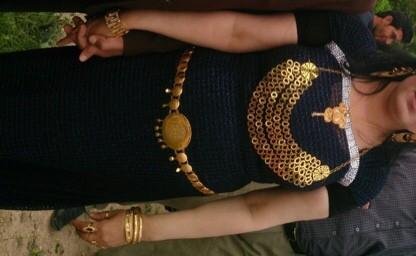 An Ezidi woman is wearing the family gold
An Ezidi woman is wearing the family gold
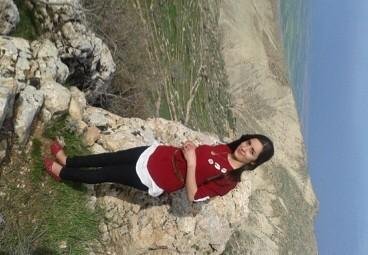 Adib on Mount Shingal (Sinjar) overlooking her home town
Adib on Mount Shingal (Sinjar) overlooking her home town
In May, before Daash took control of Mosul, she posted a photo of a young man giving a bouquet of red roses to his girlfriend. Her profile photo was of an innocent young woman wearing a flowing red dress, walking through a lush green meadow with the wind in her hair and a butterfly at her side. It was a self-image of beauty, nature, and freedom.
Adib is a product of the Ezidi religion which promotes a philosophy of love and harmony with all people and nature. She had posted a photo of two little children walking arm-in-arm on a beach. There was another photo of heart-shaped cookies with pink sprinkles on top. All that optimism and cheerfulness was before Daash attacked. 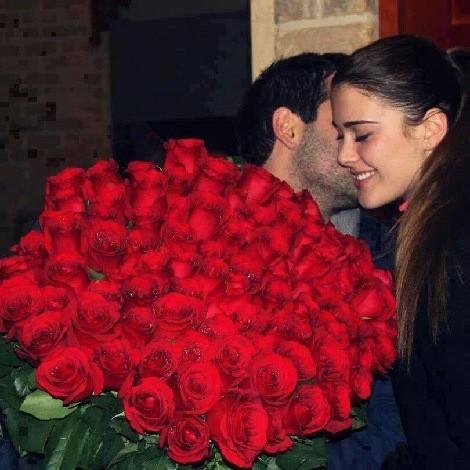

AFTER THE ISLAMIC STATE ATTACKED SHINGAL
After Mosul fell to Daash on June 10, 2014, Adib’s mood turned somber. She fled Mosul where she was finishing high school (repeatedly interrupted during the American occupation) and returned to her family in Shingal. She often posted “I am sad” on her FaceBook page. She changed her profile photo from a little girl dressed in a gauzy white dress playing the violin to a little girl with tears streaming down her cheeks. Her FaceBook banner photo read “I miss our old days.”
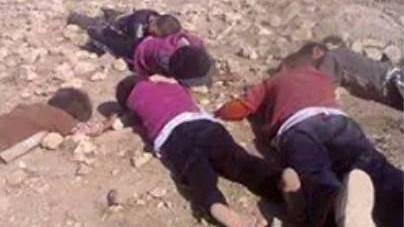 Ezidi children who died on Mount Shingal from dehydration, August 2014
Ezidi children who died on Mount Shingal from dehydration, August 2014
After Daash attacked her city of Khanasor with a population of 60,000 she changed her FaceBook profile photo to a somber side profile, chin down, the back of her hand held across her mouth in a pose of unbearable witness to unspeakable truths. Her childhood was over. Her banner photo shows the backs of six little boys lying face-down in odd positions on a rocky, dusty mountain. There is no explanation to understand they are dead.
Over 70,000 Ezidis fled to the top of Mount Shingal on August 3, 2014, when Daash attacked their towns and cities. For most of seven days they were without food or water. Over 200 children and many elderly and disabled Ezidis simply laid down and died from dehydration. The United States military air-dropped water, but it did not reach everyone.
Adib shows me on her phone a photo of 20 relatives posing on the flat plain beneath Mount Shingal, dressed in their finest clothes. Three late model cars are parked behind them. There are red circles drawn around seven heads. I ask why.
“Daash” is all she says and crosses her wrists with clenched fists.
Her family heard that Daash was advancing, so on August 3 at 11 AM her family left home and climbed Shingal Mountain two hours before Daash arrived in their city of Khanasor. Sixty-three people stayed behind believing they would be safe, but Daash captured them. They were taken to Tel Afar and forced to convert to Islam or be killed.
Adib shows me the Daash propaganda video on her phone of Ezidi men converting to Islam. There are 30 rows of men standing, praising Allah, then kneeling down. She pauses the frame to show me her four cousins in the second and third rows: Hussein Rashow Saedow, and his brothers Hassan, Nasser, and Rayed. Also, taken were their father, Rashow Saedow Ali; sister, Fayza Rasho Saedow; Hassan’s wife, Gulan, and their five children, Falah, Salah, Kefah, Sabah, and Evline; and Nassar’s son and his son’s wife and their two sons, Nory and Nawzad and two daughters (names not given).
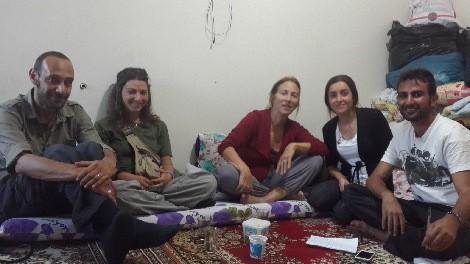 Antonio, Alesandra, Amy, Adib, Farhan in Sirnak Ezidi commune
Antonio, Alesandra, Amy, Adib, Farhan in Sirnak Ezidi commune
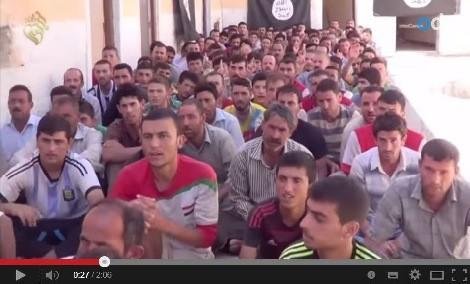 ISIS video showing four of Adib’s cousins forced to convert to Islam
ISIS video showing four of Adib’s cousins forced to convert to Islam
One beautiful 25-year-old woman was not taken with the others to convert. She was taken separately. She hid her phone in her sock and managed to secretly call a male friend. She told him she had been raped for 18 hours and she would kill herself when she got the chance.
SWEET MEMORIES OF HOMETOWN
On my second visit to Adib, I bring my Italian visitors, Antonia and Alesandra. Enthusiastically, Adib comments that his name is the same as the character Antonio in Shakespeare’s The Merchant of Venice. Adib wants immediately to learn some Italian and she, in turn, teaches them some Kurdish words. They are laughing and for an hour Adib and her whole family enjoy this escape.
Then she shows the video of her hometown Khanasor before the Daash attack. It is a clean, beautiful city with a wide four-lane main street and traffic. She has put a cheerful music track with it. She shows us her family’s house, a big, two-story building. Inside it has a marble staircase with a brass railing.
Farhan Mahlo, who has been translating for us, asks to see the video. His face flushes and tears roll down his cheek. Adib snatches the phone from him before he is finished. Every Ezidi has managed to look at the most horrible photos of brutal murders with unmoving, stone faces, but the sight of their once normal life breaks them into utter despair. Strolling down the sidewalk in the city they loved, their homes, their schools, their friends, BBQs on Mount Shingal, the wedding parties they used to enjoy . . . all, all is gone forever. They mourn the loss of their life.
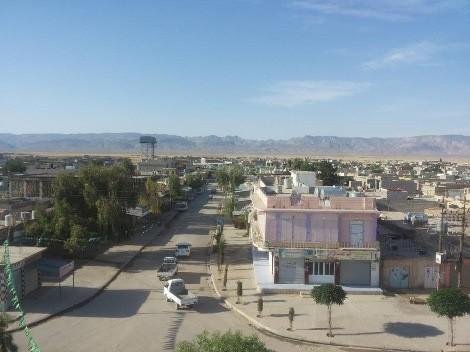 Adib’s hometown of Khanasor, Shingal, population was 60,000 before Islamic State attacked. Ezidis fled to Mount Sinjar on horizon
Adib’s hometown of Khanasor, Shingal, population was 60,000 before Islamic State attacked. Ezidis fled to Mount Sinjar on horizon
Adib’s hometown of Khanasor, Shingal, population was 60,000 before Islamic State attacked. Ezidis fled to Mount Sinjar on horizon
28 FEMALE RELATIVES KIDNAPPED
“What happened to your family, Adib?” I finally ask.
Now she explains. Twenty-eight females from Khanasor were kidnapped. Like the others, they fled to Mount Shingal on August 3, 2014,in advance of the Daash attack. When they tried to come off the mountain and walk 50 km to Syria, Daash captured them and took them to Tel Afar. The captured females made calls to their families until their last communication on August 15. Their location and condition is not known.
Adib carefully writes down the list of 28 names and ages. Now she has turned serious. The women must be rescued. We must find them. This is everyone’s top priority. They are prisoners of war.
Adib’s family has received word from the men forced to convert to Islam that Daash is still killing more Ezidis, even though they converted.
UNSPEAKABLE ATROCITIES COMMITTED AGAINST EZIDIS
Ezidis crowded in the room pass their phones to show us photos. Everyone in the Ezidi commune has photos of the genocide on their phone. I curl my lips inward over my teeth and silently pass the phones back. No words are adequate. One can only react with a bowed head as one is forced to confront mankind’s capacity for evil. Like Adib’s FaceBook profile, I put the back of my hand over my mouth in an instinctual gesture of horror and kill the moan in my throat so it comes out as a stifled whimper.
No person should ever have to look at photos like these, let alone the real image, because once viewed, one can never wash the images from one’s head. They are photos of the most unspeakable atrocities . . . babies beheaded and others sliced open between their legs, eyes gouged out, breasts cut off, piles of bodies being bull-dozed off the road, baskets of heads, headless men hung by their legs from telephone poles, long rows of people lying down being shot in the back of their head, pickup trucks piled with bloodied bodies, a little boy with his pants pulled down hanged by the neck over the side of a building.
Once you know, you can never un-know. Acts of genocide stay with you for a lifetime, making you stare into vacant space when people are speaking to you and toss and turn at 3 AM until dawn arrives and exhaustion overcomes you. Even sleep is disturbed with dreams of being pursued and running away, but there is no escape from the memories. One may curl up fetal style day and night, but never be rested. Restlessness becomes a permanent condition. One may never again feel at home in this world.
LIFE BEGINS AGAIN WITH THE HELP OF STRANGERS
Barbara Shabo, a retired nurse in California, has written me, asking how she can help. I suggest she tell others about the Ezidi genocide and buy SIM cards for some families so they can communicate on their phones in Turkey. This is especially important for them to have a phone number to communicate with their kidnapped relatives in case they are heard from again. Barbara and her husband Alan Shabo make a generous donation. I tell Adib about her benefactor in California. Immediately, Adib asks for Barbara’s FaceBook page. She wants to reach out to the world for friendship, for love, for assistance on her path.
Ezidis do not know their future. They are traumatized and terrified. They wonder if the world knows or even cares about them. Every FaceBook friend is a welcomed lifeline.
It is now ten weeks since Ezidis fled from Shingal and one month since Adib’s family arrived through the mountains on foot to Roboski, Turkey with the help of the Kurdistan Workers Party (PKK). From Roboski they were transported to Sirnakwhere the local Kurdish municipality is providing food, shelter, and clothing for them. Slowly life begins again. The boys play volleyball. One woman crochets. Last week two babies were born in the Ezidi commune. Adib has changed her FaceBook banner photo from the dead boys to one of her kissing the baby.
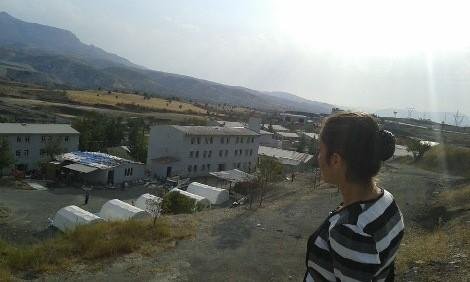 Adib looks down over her home in Sirnak, Turkey, which houses 1400 Ezidi refugees from Shingal. It is supported by local Kurds.
Adib looks down over her home in Sirnak, Turkey, which houses 1400 Ezidi refugees from Shingal. It is supported by local Kurds. 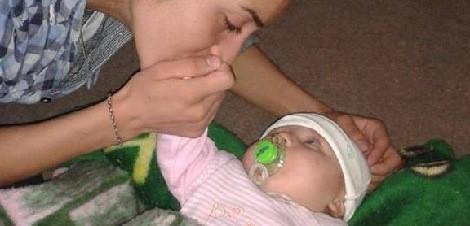 Adib kisses the second baby born in Sirnak Ezidi commune. Oct. 2014
Adib kisses the second baby born in Sirnak Ezidi commune. Oct. 2014
Adib was always the number one student in school. Now she wants to finish her last year in secondary school or go directly to university. She is hoping for a family to host her or for a scholarship to attend university. She will be a wonderful addition to any family or university community. She can be contacted on FaceBook at “Peace sn” or by phone in Turkey on 0090-531-332-6325. She is practicing and improving her English. There are thousands of Adibs who yearn for individuals in the world to offer them friendship and a path forward. You can’t save everyone, but you can make a difference in the lives of a few individuals. Please search for Ezidi or Yazidi FaceBook groups online or contact any Ezidi refugee commune, Kurdish Beledeyesi (city hall) in Turkey, or Dr. Amy L. Beam.
Resteemed by @resteembot! Good Luck!
The resteem was payed by @greetbot
Curious?
The @resteembot's introduction post
Get more from @resteembot with the #resteembotsentme initiative
Check out the great posts I already resteemed.
Downvoting a post can decrease pending rewards and make it less visible. Common reasons:
Submit
Hi. I am @greetbot - a bot that uses AI to look for newbies who write good content.

I found your post and decided to help you get noticed.
I will pay a resteeming service to resteem your post,
and I'll give you my stamp of automatic approval!
Downvoting a post can decrease pending rewards and make it less visible. Common reasons:
Submit